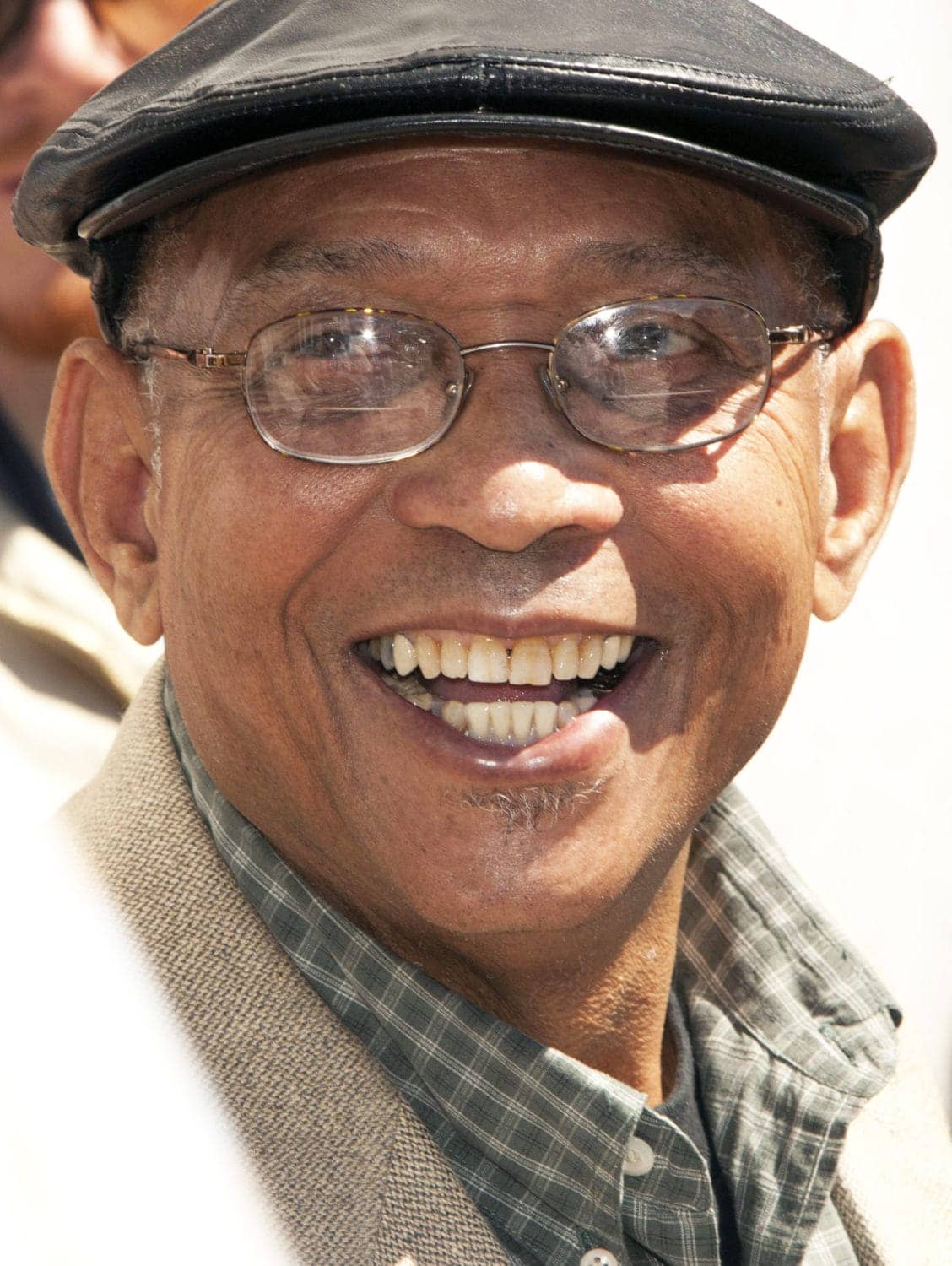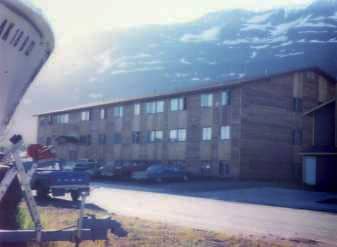
We’re launching the Dr. Ratcliff Fellowship at his birthday party, on Sept. 16, 5 p.m., at Radio Africa Kitchen, 4800 Third St. YOU are invited!
by Mary Ratcliff
If you live in the Bay Area, you probably know Dr. Willie Ratcliff, Bay View publisher since 1991 and champion of the Black community. You may have worked for his construction company, Liberty Builders, until Blacks were locked out of the construction industry – remember the noose hung on his SFO job? Maybe you watched him make provocative comments on the latest police atrocity when Rob Roth used to interview him on the Channel 2 News, or maybe you were in the crowd of a quarter million people when he spoke against the war in Iraq. His editorials in the Bay View may have encouraged you to join the fight for freedom and justice.
The greatest gift you could give him is your presence at his 90th birthday party on Friday, Sept. 16, 5 p.m., in the beautiful Radio Africa Kitchen on the corner of Third Street and Oakdale, where every morsel is delicious and everyone feels the joy of fellowship with new friends and old.

The Bay View, national Black newspaper and a flagship of the Black press, is growing! On Sept. 16, we’ll launch the Dr. Ratcliff Editorial Fellowship to support a new co-editor to take charge of news and views for the paper and collaborate with Editor Nube Brown, who would like more time to work with prisoners to abolish prison slavery.
Right now, we are also launching the SF Bay View Community Journalism Lab to hire “community journalists” to develop writing and camera skills and report on issues immediately affecting our city – building their careers as they help strengthen the community. It is a one-year program funded by California Public Libraries that will be led by the brilliant local journalist and educator D’Wana Stewart, born and raised in Bayview Hunters Point.
We won’t charge admission to the party at Radio Africa, but we will enthusiastically accept your donations, and we ask you to be as generous as you can. If you’ve been reading the Bay View for a while, you know how hard the system tries to shut us up. That’s how hard we need to push to keep the Bay View alive and thriving. All donations are tax deductible and will be gratefully acknowledged. Singing with Sweet Honey in the Rock, we pledge, “We who believe in freedom cannot rest until it comes.”
Since we in the Bay have watched Dr. Ratcliff all these years, inspired by the courage of this lifelong freedom fighter, I thought you’d enjoy learning about his years in Alaska, where from 1951 to 1987, when we moved to San Francisco, he learned how to organize the Black community for maximum influence and power and take the community’s demands to the “top dogs,” the rich and powerful who choke us with their knee on our neck.
Recently the Alaska Black Caucus asked for a brief account of Dr. Ratcliff’s Alaska years, and what follows is a slightly expanded version of what we sent them for a project on Alaska Black history-makers. Along with the story about his trip home to East Liberty, Texas, this year in May, “Coming home to freedom in East Liberty,” you now know more of the reasons why we celebrate Dr. Ratcliff’s 90th birthday. Please be his guest for the party on Sept. 16 at Radio Africa. Offer a testimony if you like.
‘I never let the door close behind me’
Why would a 19-year-old Black youth want to get dispatched to the North Slope of Alaska in 1951? Already married with a baby and another on the way, Willie Ratcliff needed the $3 an hour wage he could make building the DEW (Distant Early Warning) line on the Slope. At the Hunters Point Naval Shipyard in San Francisco, a stone’s throw from where he lives today, he was making only $1 an hour.
When he arrived at the dispatch office in Fairbanks, the dispatcher told him, “No Blacks on the Slope – Whites only!” Ratcliff made a sign and picketed the office, and when that didn’t get him dispatched, he admits with a sly smile that he threatened to break the dispatcher’s leg. He got the job. Demanding that job had opened the gates and desegregated the Slope.

Ratcliff made Alaska his home for the next 36 years, in Fairbanks until 1976 and in Anchorage until returning to San Francisco in 1987; from 1979 to 1981, he and his family moved to Valdez to build the Ratcliff House, the largest building in Alaska built and owned by Blacks – until the bank snatched it back even though his mortgage payments were current.
His construction skills were so exceptional that he was often offered opportunities by developers who liked his skills but not his color. When it was clear no other Blacks would be allowed to benefit if he accepted their offer, Ratcliff would turn them down and tell them why. “I could have been a millionaire,” he’d say of his career, “but I never let the door close behind me.”
Here are some highlights from his years in Alaska:
Built a six-bedroom house for his growing family and founded his construction business – With 10 children to support, Ratcliff mastered many of the construction skills he became famous for by building his own large home in Fairbanks. In the wake of the 1967 flood, he used the $5,000 SBA loan he got for flood damage to become a licensed general contractor.
Organized voters – “When I arrived in 1951,” Ratcliff often says, “I was appalled to learn that Black teachers were not allowed to teach in Fairbanks. But when I left, Fairbanks had a Black schools superintendent!” That progress followed his organizing the South Side Voters League, teaching Blacks to vote as a block.
Won tough fights as head of the Alaska State Commission for Human Rights – Appointed by Gov. Egan in 1971, Ratcliff served until 1979, chairing the commission during the 1974-76 pipeline construction period, when it was recognized as the most aggressive human rights commission in the country. Ratcliff is proud to have pushed the commission to sue the state to shut down the deplorable boarding schools for Alaska Native children and replace them with high schools in the villages. On the issue of “gay rights,” Ratcliff and esteemed elder Blanche McSmith were pioneers, saying back in the ‘70s, “Discrimination is wrong!” They persuaded the state to add discrimination on the basis of sexual orientation to the kinds of bias prohibited by the human rights law.
Made Trans-Alaska Pipeline construction the largest and most successful affirmative action project in U.S. history – The world’s eight largest oil companies partnered to build the 800-mile $8 billion Trans-Alaska Pipeline in the 1970s, and Ratcliff joined forces with Maryland Congressman Parren Mitchell, founder of the Congressional Black Caucus, to devise the first ever affirmative action plan for contractors to ensure Black and Native businesses and their crews could compete for a piece of the pie. Never before or since was a major construction project so inclusive, bringing hundreds of millions of dollars into Black and Native communities.
Ratcliff learned how to organize the Black community for maximum influence and power and take the community’s demands to the “top dogs.”
Echoing his victory over racial segregation on the Slope in 1951, Ratcliff led the Human Rights Commission to force Alyeska, the consortium of the world’s largest oil companies, to end its males-only policy for pipeline work, enabling women to earn the high wages, just as he had ended the whites-only policy for North Slope work in 1951. He ensured that the HRC responded to complaints of race or gender discrimination within 24 hours, even when that required flying an investigator to a remote camp.
Often in partnership with then new Alaska Native corporations, Ratcliff performed $20 million ($120 million in today’s dollars) in pipeline contracts which employed 550 workers and earned top ratings for efficiency and economy of operation. Contracts included construction from bare ground of Sheep Creek Camp, transportation of all personnel and materiel at Valdez Terminal Camp and maintenance of Flour and Alyeska Staff Housing, over 300 single family homes in Valdez.
Ran for Alaska State Senate – In 1982 and 1984, Ratcliff was a strong candidate for Alaska State Senate, winning large majorities among people of color and the working class. Discovering that Alaska had drawn its district boundaries to include a wealthy neighborhood in every district populated by poor folks, so that a candidate from the rich side of the district could nearly always win, he challenged the practice under a provision of the Voting Rights Act that has since been repealed and succeeded in forcing redistricting.
Led the largest march in Alaska – In August of 1983, Ratcliff, his daughters Kim and Kenya, and his pastor, Rev. Alonzo Patterson, led more than 1,500 marchers through downtown Anchorage on the 20th anniversary of Dr. Martin Luther King’s March on Washington. The following year, he worked with other movers and shakers to convince the Alaska Democratic Party to endorse Jesse Jackson for president of the United States.

The Ratcliff family is still well represented in Alaska by Willie Ratcliff’s children – Glenn, Kim, Stanley and Stacey – and their children and grandchildren, all potential history-makers.
Mary Ratcliff, co-publisher with Dr. Ratcliff, can be reached at mary@sfbayview.com or 415-671-0789.





